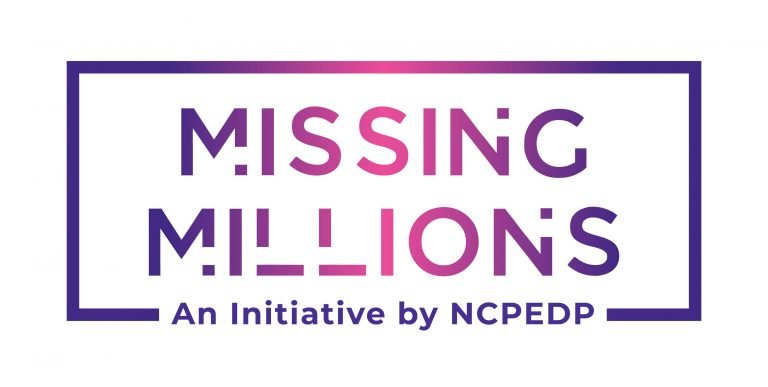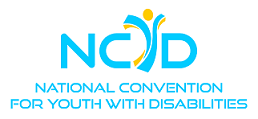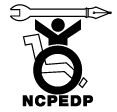National Centre for Promotion of Employment for Disabled People
![]() Disabled People Call for Political Recognition and Action
Disabled People Call for Political Recognition and Action
Description
Disability continues to remain largely absent from data collection, monitoring mechanisms, and mainstream development narratives. This invisibility often results in development narratives unintentionally leaving out persons with disabilities. Policymakers and practitioners tend to leave out persons with disabilities due to the unavailability of data. They continue to remain discriminated against which also reduces their access to social services and creates a general lack of recognition.
Goal
What we are doing
- Creating awareness around the missing millions of persons with disabilities
- Sharing story or experience of discrimination and exclusion
- Charting advocacy campaigns to find the missing millions
Our Impact
Creating visibility and awareness around the issues faced by persons with disabilities before a larger audience.
Funder
London Stock Exchange Group (LSEG)
Location


Description
Goal
What we are doing
Category A: Role Model Disabled Person Disabled persons from within the disability sector and outside who have been active as ambassadors of the cause of employment for persons with disabilities and are a positive role model for others.
Category B: Role Model Supporter of Increased Employment Opportunities for Disabled People Individuals from within the disability sector or outside who have contributed substantially to the cause of promoting employment opportunities for persons with disabilities over an extended period of time.
Category C: Role Model Companies/NGOs/Institutions Organisations from the disability sector or outside that have shown their commitment towards promoting equal employment opportunities for persons with disabilities.
Role Model Entrepreneurs with Disabilities: Entrepreneurs with disabilities who have managed to set up businesses and sustained them over a period of time. The efforts of these individuals have positively impacted not only their lives but also the lives of others involved. This category was added in 2021 and 3 awards are given under this category, across the country.
Our Impact
Funder
Brochures
- NCPEDP – LTIMindTree Helen Keller Awards 2023 Brochure

- NCPEDP – LTIMindTree Helen Keller Awards 2022 Brochure

- NCPEDP – MindTree Helen Keller Awards 2021 Brochure

- NCPEDP – MindTree Helen Keller Awards 2020 Brochure

- NCPEDP – MindTree Helen Keller Awards 2019 Brochure

- NCPEDP – MindTree Helen Keller Awards 2018 Brochure


Description
The NCPEDP-Mphasis Universal Design Awards are conferred on individuals and organizations in 4 categories who have created an impact on accessibility and Universal Design in a personal or professional capacity.
In developing countries like India, this concept of accessibility and Universal Design has yet to attain popularity and that is what the Universal Design Awards do every year with a view to spreading awareness and popularizing the concept.
The disability rights movement advocates equal access for people with disabilities to social, political, and economic life, which includes not only physical access but access to the same tools, services, organisations and facilities which we all pay for. Over the years, accessibility has become the fulcrum of the global disability rights movement.
A concept that is intrinsic to any kind of access is ‘Universal Design’, which means a design that is usable to the greatest extent possible by everyone, regardless of age, ability, or situation.
Instituted in 2010 by the National Centre for Promotion of Employment for Disabled People (NCPEDP) in partnership with Mphasis, the Awards have been recognised as the benchmark for best practices for accessibility for all, promoting local solutions with a focus on affordability, accessibility and scale.
Goal
The Awards cover accessibility in the following fields:
- Built Environment
- Transport
- Information and Communication Technology
- Services
- Aids and Appliances
- Public Policy and Advocacy
What we are doing
To carry on Mr Abidi’s legacy, the Javed Abidi Public Policy Award was instituted in 2018. This award is given to an organization and an individual for their pioneering work in ensuring that people with disabilities have equal access to the same opportunities and rights as all other citizens of India.
Our Impact
Funder
Location
Frequently Asked Questions (FAQ)
Q. What are the NCPEDP-Mphasis Universal Design Awards?
The NCPEDP-Mphasis Universal Design Awards recognize individuals and organizations who have demonstrated exemplary work in the areas of accessibility and universal design.
Q. What is Universal Design?
Universal design is a design that is usable by the largest possible audience, irrespective of age, disability, or other factors, without the need for adaptation or specialized design.
Q. Who can apply for the Universal Design Awards?
Any individual or organization working to create an impact in the field of accessibility and universal design, whether in a personal or professional capacity, can apply for the awards.
Q. What are the eligibility criteria to apply for Universal Design Awards across different categories?
Any individual or organization based in India with demonstrated experience in the fields of universal design and accessibility is invited to apply for the awards.
Q. How can one file an application for the awards?
Applicants must fill in the Google form available on our website and social media platforms corresponding to the relevant category. Alternatively, the form can also be downloaded in Word format from the website and emailed to uda.ncpedp@gmail.com.
Q. What are third party testimonials?
Third-party testimonials are independent endorsements that validate the applicant’s work and the value of their product or service.
Q. What is the nomination process for the Universal Design Awards?
The nominator must provide information regarding the candidate’s profile and work through the Google application forms.
Q. Can an applicant who was not shortlisted for the award reapply for the next edition of the Universal Design Awards?
Yes, applicants may reapply for subsequent editions of the Universal Design Awards.
Q. How can applicants be informed about their selection?
Selected applicants will be notified through email at each stage of the selection process by our team, informing them of the status of their application.
Q. Is there a waiting period for former awardees before they can file a nomination again?
Yes, former awardees are eligible to file nominations again only after a period of three years.
Q. If an Individual is both a person with disability and a working professional, under which category should they file their application?
An individual who is both a person with disability and a working professional should file their nomination under Category A: Person with Disability.
Q. How many awards are given in each category?
A total of 11 awards are distributed across four categories: 3 Awards each under Category A and B, and 4 awards under Category C. In exceptional cases, jury appreciation awards may also be granted within these categories. Additionally, 1 organization or individual is awarded the Javed Abidi Public Policy Award.
Q. Is there any monetary compensation or reward associated with the awards?
No, monetary compensation is not provided. However, the accommodation and travelling expenses of the awardees for the award ceremony are taken care of.
Q. What supporting documents are required to apply for the awards?
Applicant must submit the following documents:
- Disability certificate (if applicable)
- A high-resolution photograph of the nominee (for individuals) or the company logo (for organizations)
- Photographs or Media Coverage showcasing the nominee’s work
- Third Party Testimonials (if available)
Q. What is the selection process for universal design awards?
The selection process for the awards is as follows:
- Our committee of experts conducted a thorough review of the application forms, leading to the initial shortlisting of candidates.
- Detailed background checks are conducted to obtain additional information or clarification regarding the applications.
- An esteemed jury panel undertakes the final scrutiny of the shortlisted applications.
Q. Who is eligible to be a nominator?
Any Indian national familiar with the candidate and their work can nominate an individual or organization for the award.
Q. What is the Javed Abidi Public Policy Award?
The Javed Abidi Public Policy Award honors individuals and organizations who continue the legacy of Mr. Late Javed Abidi by promoting universal design through their advocacy efforts. This award recognizes one organization and one individual for their groundbreaking work in creating a level playing field for people with disabilities.
Q. What does an applicant receive upon winning the Universal Design Awards?
An awardee receives an illustrious trophy and certificate of appreciation. Additionally, association with Universal Design Awards, along with the recognition and accreditation from NCPEDP adds value to the applicant’s portfolio. Furthermore, it provides a platform to network with leading individuals and organizations dedicated to disability inclusion.
Q. Who can I contact for any queries or questions related to the awards?
Applicants are advised to thoroughly review the information available on our website. For further queries or doubts, please write to us at uda.ncpedp@gmail.com.

The NCPEDP-AIF Walk to Freedom
Description
Goal
What we are doing
Our Impact
Funder
Location

National Convention for Youth with Disabilities (NCYD)
Description
Goal
What we are doing
Our Impact
Funder
Location


